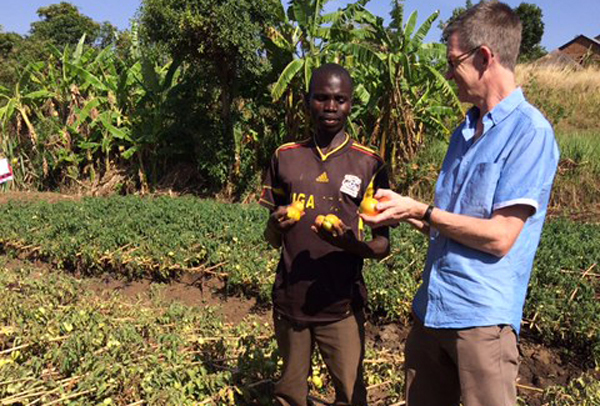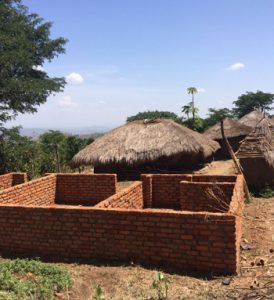“The grass is always greener on the other side” is a proverb that’s been with us since Biblical times; perhaps longer.
It’s an expression that has a strong relevance when speaking about the rural youth of sub-Saharan Africa; and the many young people who dream of a life that’s different to that of their parents and grandparents.
It’s not hard to see why a young man or woman might want to forego a life in farming, and pursue a better future somewhere else. Farming is tough. When it must be done with hand tools, in baking heat, and on small farms, it is easy to understand that thinking.
Because alternate sources of employment are scarce in remote village communities, such an outlook also explains the rapid pace of urban town and city growth, across Africa.
Opportunities can be extremely limited in the largely non-industrialised cities and towns of Africa however, which is why at Self Help Africa we believe that better options can be found for Africa’s rural youth within their own communities, under their feet.
Nebbi is a Ugandan frontier town, close to the border with neighbouring Democratic Republic of Congo (DRC).
Self Help Africa has been running an innovative, EU-backed development programme in this area for more than a year, supporting thousands of young farmers to create opportunities for themselves in their local communities.
The project is assisting 3,000 young men and women aged between 17 and 27 with short-course agricultural training, and a range of other skills designed to help them to become productive farmers, enterprising agri-preneurs and innovative job creators in the local community.
“The young people are our most important resource. They are our future. They are the ones to build and strengthen us in the future,” one village headman told me.
Participants work together in groups of 30, with ten members of each group attending five-week agricultural college training to learn skills that they can then ‘pass on’ to their peers.
While the course as to date provided training to 1,000 young men and women, the demand to attend agricultural training is far higher.
The student farmers each receive inputs including seed, watering cans, spray pumps and pesticides, while all of the project participants also receive training, and are encouraged to start saving small amounts, as members of local village savings and loans (VSL) groups. The sums they are saving are modest – the equivalent of less than one euro per week – but it is hugely popular.
Over the past year VLS groups have provided loans that have enabled members to rent farm-land, purchase seed and livestock, and in one instance has helped a young farmer to buy a motorbike with which he has set up his own ‘boda-boda’ motorcycle transport service.
Each farmer has received a watering can, seed, pesticide, and a shared spray pump. Many, are growing onions, tomato and cabbage – vegetable crops that can be grown throughout the year where a reliable source of water is available.
One of the biggest obstacles however is the weather. This year, nearly all of the crops are fighting for survival with the late arrival of the rains.
The seedlings are barely staying alive in nursery beds, and it is difficult for even the most diligent and hard working young farmer to produce a year-round supply of food in the rock hard ground.
Self Help Africa is supporting them in their efforts however, and for the 3,000 young farmers involved in this project, there is new belief that there can be a future for them in this remote, rural corner of Uganda.
– David Dalton, who is Executive Director of Self Help Africa travelled to Nebbi in April.


